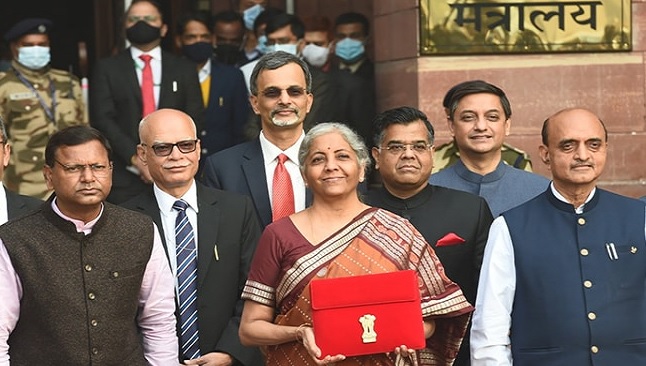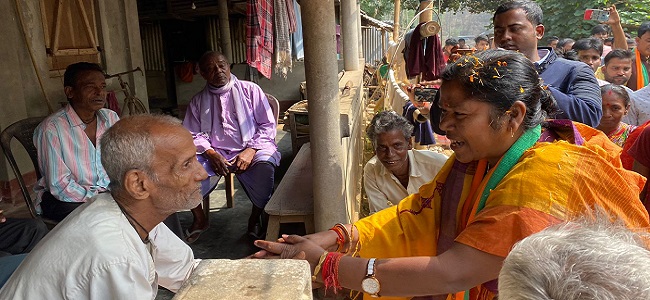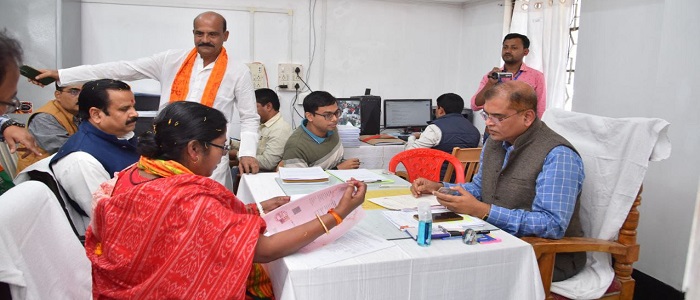Kolkata: Industry leaders have hailed the Union Budget 2022-23 as growth oriented and progressive. They also welcomed Government’s focus on Infra and Agri-Sectors.
Let’s take a look at what Industry leaders have to say about the budget:
Dinesh Khara, Chairman, SBI: The budget continues to strike a balance between the challenges posed by the recurring COVID-19 waves and the need to contain the economic damage due to pandemic. The budget achieves this delicate balance quite well. The emphasis going forward is on seven parallel tracks – PM GatiShakti, Inclusive Development, Productivity Enhancement & Investment, Sunrise Opportunities, Energy Transition and Climate Action and Financing of Investments. On the banking and finance side the announcements are significant. The budget proposes to set up 75 Digital Banking Units (DBUs) in 75 districts of the country by Scheduled Commercial Banks. This proposal is in sync with our ongoing digital banking initiatives. The most significant announcement of the budget are higher allocation to Capital expenditure and extension of ECLGS – particularly the specific support to hospitality & related sectors. The Budget is a very well-crafted statement of intent, drawing from the experience and enhances growth prospects of India in post COVID world.
Chandra Shekhar Ghosh, MD & CEO, Bandhan Bank: The Union Budget for 2022-23 seeks to support the recent economic growth momentum India has seen, and help it sustain over the long-term. The substantial rise in planned capital expenditure for creation of infrastructure, focus on affordable housing, welfare & development of MSMEs, and the farm economy will prepare India for the next phase of growth. This can lead to creation of millions of new jobs, helping India leverage its young demographic dividend. The new business opportunities and enterprises that will come up due to these projects will also benefit the banking sector. The extension in timeline and increased outlay towards ECLGS and additional infusion of funds in the Credit Guarantee Trust for Micro and Small Enterprises will provide relief to MSMEs, especially those engaged in contact-intensive sectors, who have been adversely impacted due to the pandemic. The significant additional allocation towards PM Awas Yojana will boost demand for affordable housing, and in turn demand for housing finance. It was also heartening to hear about the Prime Minister’s Development Initiative for the North East Region find special mention in the Budget, in line with the capex projects planned for the rest of the country.
Harish Prasad, Head Of Banking, India, FIS: The formal announcement of the Hon’ble Finance Minister on launch of India’s CBDC, the Digital Rupee, during 2022-23 is a much awaited and positive move. This will trigger a wave of preparatory activity amongst retail payments providers and apps to offer payment mechanisms using the Digital Rupee, along the lines as been seen in China with major Digital payments players and apps offering Digital Yuan payments via their apps. There will likely be a similar model that will be seen in India to support adoption and use of the Digital Rupee, which is paramount for its success. Another effect of this in the slightly longer term could be that the dependence on UPI for small value payments could potentially reduce with the Digital Rupee gaining traction in time. Given the level of growth being seen on UPI and the associated stress on technology infrastructures of issuers and banks, this may be a good thing after all. What will be keenly awaited though is clarity on digital currency owner identification and any associated reporting requirements for payments apps, and whether the anonymity that physical currency enables is an attribute that will be supported in the Digital Rupee.
Kuldip Maity, MD & CEO, Village Financial Services (VFS): I would like to compliment our Hon’ble Finance Minister for presenting a growth oriented budget, which aims at inclusive development. Incremental focus on agri and infrastructure sectors and rural areas will give a boost to the economy and lay the foundation for the next phase of growth. Agri sector is the backbone of Indian country’s economy and initiatives like Kisan drone for crop assessment, digitization of land records, spraying of insecticides and nutrients will give boost to farming. Furthermore, the extension of ECLGS scheme is a much needed move for the pandemic affected MSME sector. The credit and fiscal support of 5 lakh crore will bring relief to the sector and will also encourage new business enterprises to come up besides employment generation. Support for the digital payments ecosystem is another welcome move. This will encourage further adoption of digital payments.
George Alexander Muthoot, MD, Muthoot Finance: The 2022-23 budget has laid clear emphasis on prioritising economic growth with focus on capital spending to generate growth and employment. The announcement relating to MSMEs and thrust on digital banking will further go a long way in supporting the economy. The MSME sector has been one of the most impacted during the pandemic. Focusing on further supporting the MSME sector and reduce stress in this segment, the Government has widened the ECLGS scheme & revamped CGTMSE (Credit Guarantee Trust for Micro and Small Enterprises).The ECLGS will be extended up to March 2023 and its guarantee cover will be expanded by Rs 50,000 crore to total cover of Rs 5 lakh crore. The CGTMSE scheme will be revamped with required infusion of funds. This will facilitate additional credit of Rs 2 lakh crore for MSMEs and expand employment opportunities. We believe that the NBFC sector will also benefit from the allocation of Rs. 48,000 cr (under the PM Awas Yojana) for affordable housing unveiled by the honourable Finance Minister during the budget announcement. This move will accelerate the credit demand in the economy and positively affect the performance of NBFCs catering to the sector.






